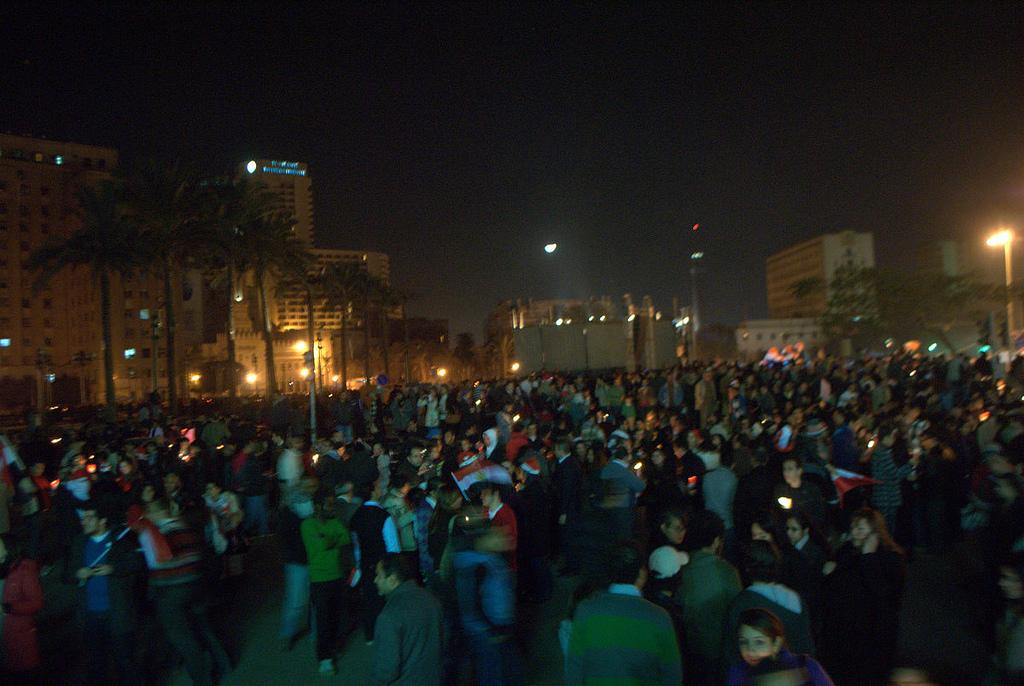Egyptians mark one-year anniversary of Arab Spring protests in their country
Protesters in Tahrir Square, like these who gathered on New Year’s Eve, continue to protest and demand the sorts of government reforms they believe were promised in the revolution that started last year. (Photo by Flickr user lilianwagdy, cc-by-sa.)
Today marks the one year anniversary of the uprising in Egypt’s that eventually ousted President Hosni Mubarak.
In the past twelve months, the country has taken big steps to transition to a more democratic government. Egypt rewrote its constitution and the first freely elected parliament in more than 60 years held their first session this week.
But the future also brings cause for concern. The world watched violence erupt during renewed demonstrations in Tahrir Square just last month, and thousands of Egyptian women marched to protest violence by security forces against civilians — including the beating and stripping of a female protester, which was caught on camera.
Thousands of people have packed back into Tahrir Square to commemorate the anniversary of the protests.
Robin Wright, author of a book that examines youth and revolt in the Muslim world and a journalist who’s covered the Middle East for more than 30 years, said it’s a tough time for Egypt right now.
“Many Egyptians look at what’s happening beginning today as the third phase. The next six months will see the transition, including writing a new constitution, electing a new president, but also most importantly, trying to dislodge the military,” Wright said.
The military has had increasing and omnipresent power since 1952, when the monarchy was overthrown. Some estimates say that the military controls upward of one-third of all economic activity in the country, Wright said.
“This is going to be tougher, in many ways, that ousting a single dictator,” Wright said. “The stakes are so huge for the military in general.”
Islamist parties are leading the way, across the Arab world as governments try to transition to democracy, and Wright said it’s no different in Egypt. All of the Islamist parties have renounced violence, including the Muslim Brotherhood and Salafi Al-Nour parites in Egypt, and most have been trying for decades to get involved politically.
Neither party has an outright majority, though they were the top two vote-getters in parliamentary elections.
The two don’t particularly care for each other and have resisted working together, despite having common values, Wright said.
